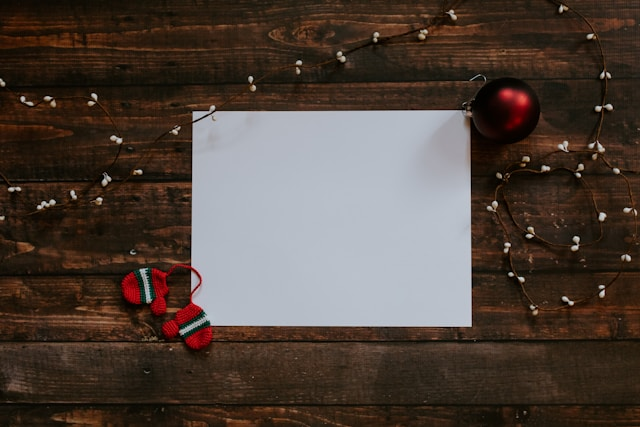
The Editing Company
Toronto, Ontario
RECENT POSTS
TEC Blog
Categories
Show All- Editing
- Grammar
- Usage
- Style
- Editor/writer
- Publishing
- Business
- Writing
- Writers support group
- Event
- Proofreading
- Copyright and permissions
- Usage
- Book reviews
- Editing new media
- Technology
- Books & libraries
- Ttc stories
- Editing & marketing
- Office happenings
- Social media & community
- Language & editing
- Social media
- Editing & marketing
- Indexing
- Book design
- Tec clients
- Guest blogger
- Creative women doing sixty
- Book clubs
- Books and reading
- Ebook technology & services
- Editing numbers
- Editing & technologies
- Opera, movies

What Is Your Editing Genre? Tips to Help You Identify Your Strengths and Talents
by Lesley-Anne Longo
Published at 2024-09-09
I’m sure you’re familiar with the concept of genres—as a reader, you’ll know which genres you enjoy and gravitate toward, and as a writer and author, you’ll know what genres you prefer to write in. However, the concept of genres applies to the practice of editing as well, and if you’re just starting out as an editor, it’s something you should keep in mind.
What Genre(s) Do I Want to Work In?
Picture this: You’re a brand-new editor, freshly graduated from the publishing program of your choice. You know the ins and outs of proofreading, the correct copyediting procedure, and you have the theory down on developmental editing (granted, that one is a lot tougher to teach without hands-on experience). You’re ready to take on your first project. And you do! And the next one, and the one after that, and the one after that.
However, at some point, you realize that you’re more drawn to certain projects over others. Perhaps you like the orderly rules of academic editing. Or, quite the opposite, it’s possible you are inspired by the creative approach of editing poetry. Maybe you enjoy organizing the chaos of cookbooks.
How Do I Identify My Genre?
There’s nothing wrong with feeling drawn to working with certain genres as an editor. And your preferences could be due to any number of variables. Perhaps, as I mentioned above, your editing practice lends itself more to order and rules—you like hard-and-fast directions and concrete applications. If so, academic editing might be the “genre” for you.
Or, perhaps your preferred reading material could be a clue—maybe even not just a clue, but an added strength. If you love reading science fiction novels, and you have for years, then of course you’ll be very familiar with the genre as a whole. You’ll know the common tropes and frameworks, be familiar with the art of worldbuilding, and you’ll have knowledge of the sub-genres (steampunk, dystopian, space opera?) that are housed under the umbrella of science fiction. You’ll already come to the table with intimate knowledge that other editors won’t have.
What excites you about editing could be a clue to help you figure out what genres you might work with best.
How to Use Your Strengths
Using the example of science fiction, an editor who doesn’t read science fiction might miss a crucial detail in a manuscript copyedit because they are unfamiliar with the genre. But you, an avid sci-fi fan evaluating the same manuscript, would catch that the author has referenced two characters sharing a bottle of champagne—despite having the story take place in a universe where planet Earth has never existed. You can’t have champagne if the region of Champagne, France, has never existed, right? Or grapes? But you could have those characters share a bottle of a fizzy, sweet, wine-like beverage called…something else.
In a similar vein, if you’re a romance reader, you’ll know the rule of “happily ever after.” In a nutshell, readers of romance novels are going to want—and will expect to be given—that “happily ever after” (or HEA, as it’s often shortened to) resolution at the end of a book. It doesn’t necessarily mean that everything works out 100% of the time, but it does kind of require our protagonist to be happy in whatever choice she’s made, whether that’s happily ever after, or happily “for now.”
As an editor who works in the romance genre (and a reader myself), I have been surprised a couple of times by manuscripts that have an explosively dramatic and tension-filled climax—usually some kind of big conflict/argument between the protagonist and her love interest—only to have that scene followed immediately by: “The End.”
Usually, this is because the author intends to create a series, and they have decided they want to continue the story and resolve things in the next book. However, a book, even if part of an overarching series, still needs to function and stand on its own as a complete story in and of itself.
Ending a book with the protagonist’s love life in tatters and dangling on the precipice of a breakdown might fly in literary fiction, but I can tell you right now that romance fans will not appreciate it. And that is what I have told romance authors whose manuscripts tended to go in this direction. Kindly, gently, and supportively, of course, but I told them just the same, as an editor specializing in the genre but also as a reader of the genre.
Look to Real Life Too!
Figuring out your unique strengths in editing genre works can be as simple as finding enjoyment in reading specific genres, but you can also look to real-world experiences too.
If you’re great with details, consistency, and organization, and you also love to cook as a hobby, then maybe you’d consider editing cookbooks. You probably already know a lot of the terminology and techniques, from dicing to folding, deglazing to chiffonading, and dredging to rendering. You know what “spatchcock” means, and how to make a roux.
You’ve followed a lot of recipes already as part of your hobby, so you know what works, and what doesn’t. Things that have annoyed you in recipes before will annoy other readers as well, so you know what to look for.
I have edited a total of one cookbook, and I will say that it definitely requires a unique approach, but gosh if it wasn’t a refreshing and intriguing experience!
So, yes, be sure to look to your own reading habits for clues to illuminate editing strengths you didn’t even know you had, but look to your life experiences as well. Hobbies, past work experiences, travel experiences, cultural or religious knowledge…all this and more can give you an added edge when it comes to figuring out your own editing “niche.”
For more on editing niches, check out TEC Editor Sam’s review of Editorial Niches, the companion volume to Editing Canadian English.
Are These Skills Transferrable?
I don’t know that every skill is transferrable when it comes to genre editing, but certainly some of them very much are. Your knowledge of the intricate and expansive worldbuilding practices found in the fantasy genre might work equally well when applied to science fiction, a genre that has extensive and detailed worldbuilding of its own.
Maybe your interest in historical fiction could help you when editing a steampunk novel, with its technology that blends the retro and futuristic, as well as aesthetics inspired by 19th-century industrial steam-powered machinery. Perhaps you worked in the medical or legal field in an earlier stage of life, and that inside information can help you edit medical or legal thrillers now.
I will say that, when tossing ideas for this blog around with Beth, TEC’s Senior Editor, she threw out the question, “Can a sci-fi editor edit poetry?” Poetry is technically a genre, but it’s exceptionally specific and unique, and it requires a skillset to match. I’ve never edited poetry myself, but as a fledgling editor working at an indie publishing house, I once noticed one of the more senior editors on staff editing a volume of poetry.
I was intrigued—how would one approach such a thing? To me, it seemed like trying to edit a painting, or a sculpture. So much of poetry is artistic expression, from the exact words chosen to how they are utilized, to even how they are arranged or displayed on the page. (The editor in question was working with an author who very specifically placed words on the page, with lots of intentional extra spacing between words.)
So, I asked her, “How exactly do you edit poetry? How do you know when to make a suggestion? How do you respectfully question the author’s art?”
She laughed ruefully, and unfortunately wasn’t able to provide much in the way of specifics, though I knew her well enough to know that she would have, if she could. “You just…have to know,” she said. “It’s like a feeling, an instinct. I can’t really explain it.”
I knew then that editing poetry wasn’t for me. I like rules too much. I like having structure.
But…someone out there has to edit the poets of the world. If you have that creative, free-flowing spirit, if you love poetry and understand how it works at its core—why can’t it be you?
Know Your Skills and Strengths
And that’s how you identify your “editing genre.” You take what you enjoy, and what you’ve done and learned in life, and you turn it into a strength. Publishing programs and schooling can teach you a lot, but they can only get you so far. Tapping into the skills and expertise you didn’t even realize you had will not only give you direction but will also kickstart your career and get you on the right path.




